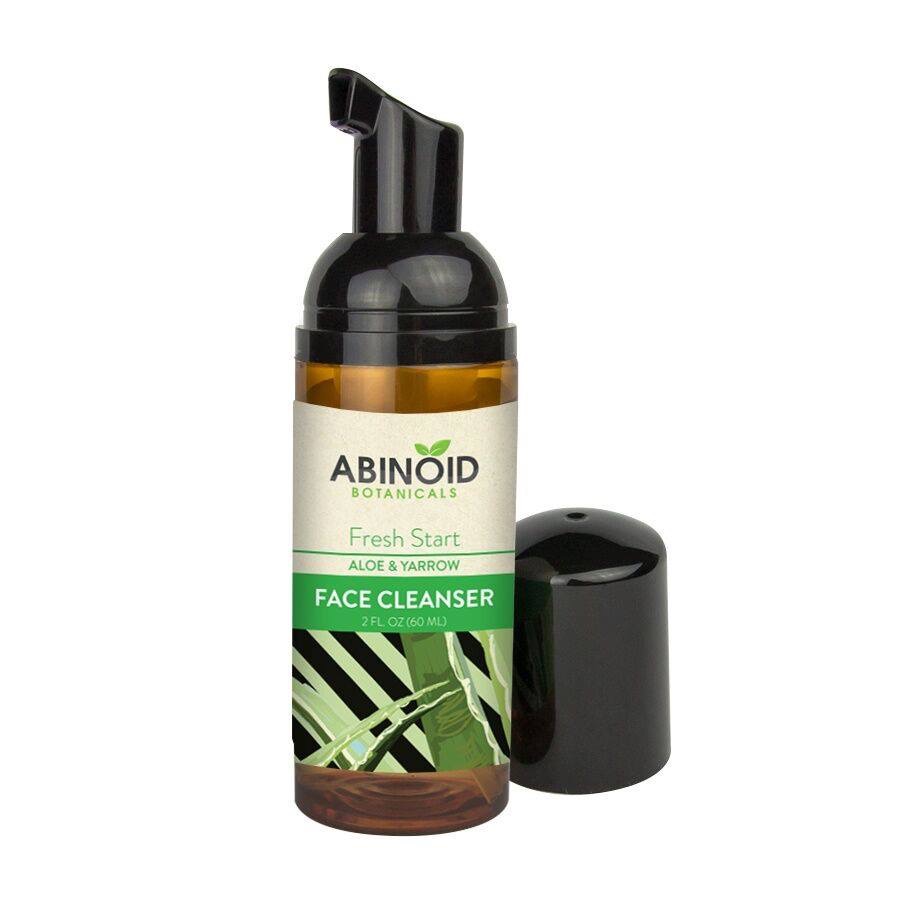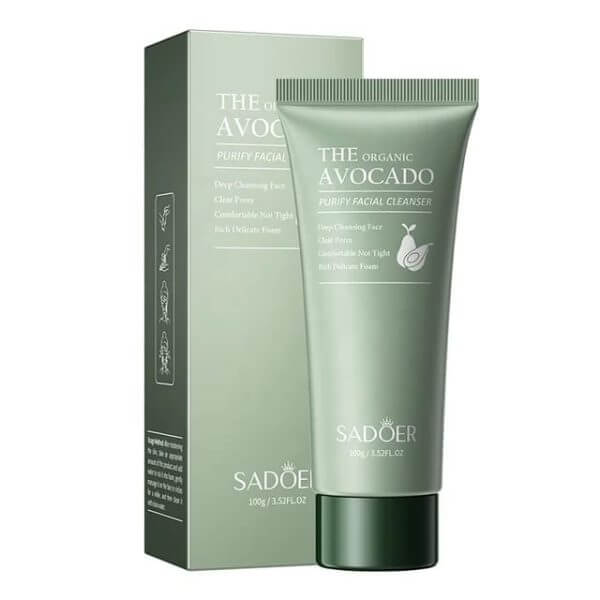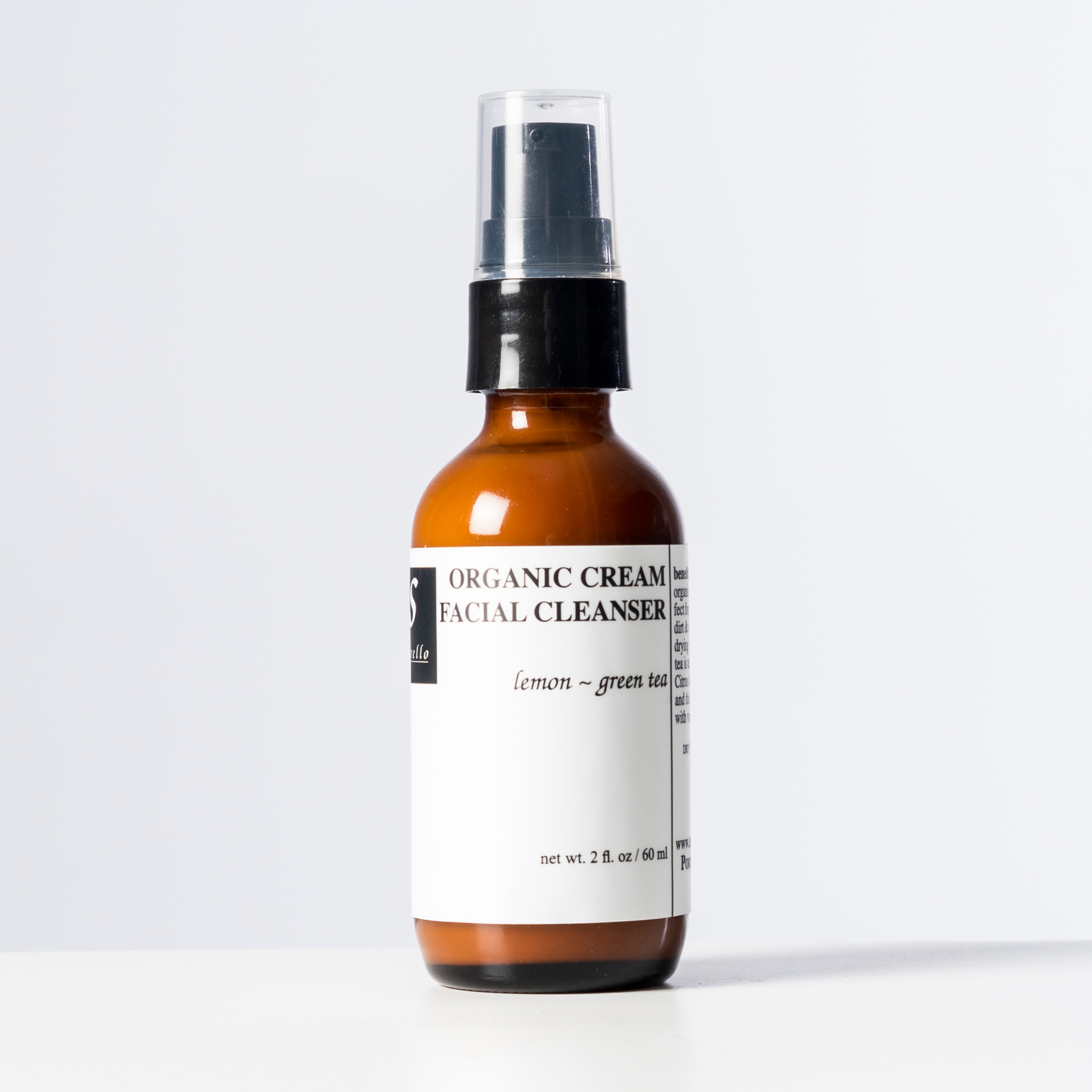Introduction to Organic Skincare
Organic skincare has become a hot topic in beauty circles. Many now choose to use skincare products, like organic facial cleansers, free from harsh chemicals. But, what exactly does ‘organic’ mean in this context? In simple terms, organic skincare products contain ingredients from natural, non-synthetic sources. They often include plant extracts, oils, and essences that are farmed without pesticides or GMOs. The benefits of using organic skincare products are plentiful. Not only are they gentler on the skin, but they also support sustainable farming practices. Starting with an organic facial cleanser is a great step towards a healthier skincare routine. This guide will cover everything you need to know about choosing the right organic facial cleanser for your skin type, as well as their environmental benefits. Stay with us to learn why organic facial cleansers are not just a trend, but a lifestyle change for the better.

The Importance of Choosing Organic Cleansers
In the world of skincare, the choices you make matter. Organic facial cleansers stand out for a couple of key reasons. They offer a gentler approach to cleansing your skin, making them ideal for those with sensitive skin types. Additionally, by choosing organic, you’re opting for products minus harmful chemicals that can adversely affect your skin and overall health.
Organic facial cleansers are rich in natural nutrients. These are better absorbed by your skin than synthetic alternatives. Their ingredients are typically non-irritating and don’t strip the skin of natural oils. This means that they help maintain your skin’s balance, contributing to its natural glow and health. What’s more, these organic options ensure that you’re not exposing your skin to potential long-term harm from chemical preservatives and fragrances found in many traditional cleansers.
Another critical point is sustainability. Organic skincare supports eco-friendly farming practices. These practices avoid the use of pesticides and fertilizers that can damage the environment. So, when you choose an organic facial cleanser, you’re not only taking care of your skin. You’re also making a positive choice for the planet. This reflects a trend towards more conscious consumerism, where choosing products has greater ethical and environmental implications. To sum it up, opting for organic cleansers encourages healthier skin and a healthier world.

Top Ingredients to Look for in Organic Facial Cleansers
When diving into the world of organic facial cleansers, it’s crucial to know what ingredients to look out for. These ingredients are not only safe for your skin but also for the environment. Here’s a list of top natural components often found in organic facial cleansers that you should consider:
- Aloe Vera: Known for its soothing properties, aloe vera helps calm irritated skin and provides hydration.
- Tea Tree Oil: This ingredient has natural antibacterial qualities, making it great for fighting acne.
- Chamomile: An anti-inflammatory agent, chamomile can reduce skin irritations and contribute to a soft, smooth complexion.
- Jojoba Oil: It similarly matches the natural sebum of the skin, aiding in maintaining the skin’s balance.
- Glycerin: Plant-based glycerin attracts moisture to the skin, ensuring it remains supple and hydrated.
- Witch Hazel: This nature’s astringent helps in minimizing pores and controlling oil production.
- Green Tea Extract: Loaded with antioxidants, it protects the skin from free radicals, promoting a youthful appearance.
Remember that the effectiveness of an organic facial cleanser largely lies in its composition. Look for products that list these ingredients near the top, as this often means they are present in higher concentrations. Moreover, be sure that the cleanser you choose aligns with your specific skin concerns and type for the best results. Opting for products with these powerful natural ingredients will help you achieve a clear and radiant complexion, while also being kind to the planet.

Evaluating the Effectiveness of Organic Cleansers
Choosing the right organic facial cleanser means ensuring it’s effective for your skin. It’s not just about having natural ingredients. The cleanser must perform well in cleaning, hydrating, and soothing your skin. Here’s how you can evaluate their effectiveness:
- Check the Ingredients: Look for the powerful natural ingredients listed earlier in this guide. They should be at the top of the ingredients list, indicating higher concentrations.
- Patch Test: Always perform a patch test to see how your skin reacts. If redness, itchiness, or irritation occurs, it might not be the right product for you.
- Notice Skin Changes: After using an organic cleanser for some time, observe your skin. A good cleanser will leave your skin feeling refreshed, balanced, and without tightness or dryness.
- Read Reviews: Online reviews can be a treasure trove of information. See what others with similar skin types have experienced with the product.
- Assess Sustainability: An effective organic cleanser should also care for the environment. Check if the packaging and sourcing practices of the brand are eco-friendly.
Remember, an effective organic facial cleanser will clean without stripping your skin of its natural oils. It should also contribute to the overall health and radiance of your skin. Keep these pointers in mind, and you’ll be well on your way to choosing an effective organic facial cleanser that works in harmony with your skin and the planet.
How to Choose the Best Organic Facial Cleanser for Your Skin Type
Finding the right organic facial cleanser for your skin type is key. Here are steps to guide you in your choice:
- Know Your Skin Type: Are you dry, oily, sensitive, or combination? Each type needs a different balance.
- Seek Specific Ingredients: For dry skin, look for hydrating elements like glycerin. Oily skin benefits from oil-control ingredients like witch hazel.
- Texture Matters: Gel cleansers are often good for oily skin. Creamy ones may suit dry skin better.
- Test Effectiveness: An ideal cleanser should clean deeply without over-drying. It should leave your skin soft and comfortable.
- Read Labels: Check for the ‘certified organic’ label to ensure authenticity.
- Consider pH Levels: The cleanser should match your skin’s natural pH as closely as possible.
By following these steps, you can pick an organic facial cleanser that suits your skin. You will enjoy a fresh, clean, and natural skincare experience.

The Environmental Impact of Organic Skincare Products
The shift to organic facial cleansers is more than skin deep. It extends to environmental care. Here are some ways organic skincare products make a difference:
- Reduced Chemical Runoff: Traditional skincare products may contain chemicals that can pollute water bodies. Organic products avoid such harm.
- Support for Biodiversity: Organic farming encourages a variety of plant life, which is good for ecosystems.
- Eco-friendly Packaging: Many organic products use recyclable or biodegradable packaging, reducing waste.
- Less Energy Consumption: Organic farming generally uses less energy than conventional methods, cutting carbon footprints.
- No Animal Testing: A lot of organic brands commit to cruelty-free practices.
Choosing organic skincare like facial cleansers has ripple effects on the environment. These effects align with a responsible lifestyle. They support the well-being of our planet. Your skincare choices have the power to promote a healthier Earth.
Organic Cleansers vs. Traditional Cleansers: A Comparison
When exploring skincare options, it’s useful to compare organic facial cleansers with traditional ones. Here are some key differences:
- Ingredient Sources: Organic cleansers use natural, non-synthetic ingredients. Traditional cleansers often contain man-made chemicals.
- Skin Sensitivity: Organic options are usually more gentle. They are less likely to irritate sensitive skin than traditional cleansers.
- Environmental Concerns: Organic cleansers support eco-friendly practices, unlike many traditional skincare products.
- Health Implications: Using organic products reduces exposure to potentially harmful chemicals. Traditional cleansers may have ingredients linked to health concerns.
Choosing an organic facial cleanser over a traditional one can have a noticeable impact. It benefits both your skin and the environment. Make sure to read labels for a ‘certified organic’ mark to ensure you’re getting a truly organic product.

Incorporating Organic Cleansers into Your Daily Skincare Routine
Switching to organic facial cleansers can be a major step in your daily skincare. Here’s how you can seamlessly add them to your routine:
- Start and End Your Day Right: Use an organic cleanser both in the morning and at night to keep your skin free from impurities.
- Gentle Massage: Apply the cleanser in a gentle, circular motion. This helps in effective cleaning without stressing the skin.
- Rinse with Lukewarm Water: Hot water can dry out the skin. Cool water doesn’t remove oils well. Lukewarm is just right.
- Pat Dry: After rinsing, pat your skin dry with a soft towel. Avoid rubbing as it can be harsh on the skin.
- Follow with Organic Products: Use other organic skincare like toners, moisturizers, and serums after cleansing.
- Consistency is Key: Stick to your routine for the best results. Your skin will adapt and respond to consistent care.
By using an organic facial cleanser regularly, you can achieve a clean, balanced complexion. Plus, you are making a conscious choice for the environment. Keep your skincare simple and natural, and your skin will thank you.



